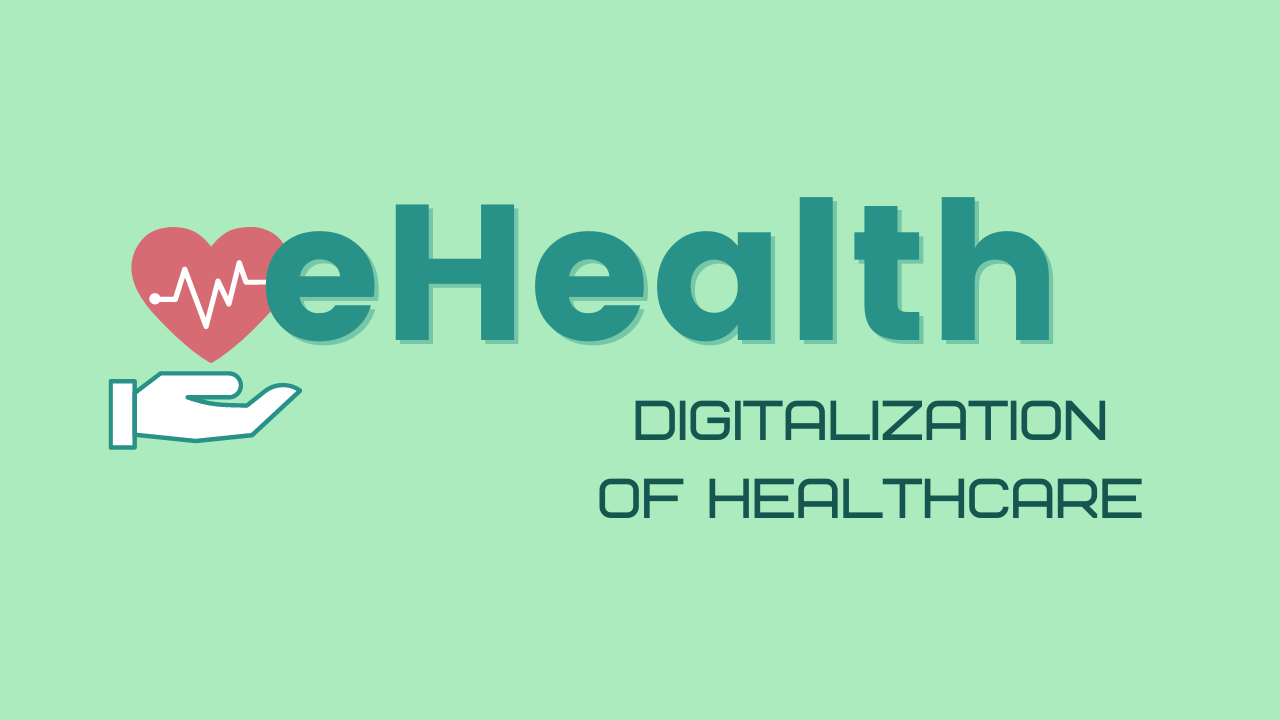eHealth
eHealth
Blog Article
eHealth
Overview
eHealth, generally known as electronic wellness or Health care know-how, refers to the utilization of electronic conversation and knowledge engineering in the healthcare industry. It encompasses an array of systems and applications targeted at improving the effectiveness, success, and top quality of Health care delivery.
Goals of eHealth
The leading objectives of eHealth might be summarized as follows:
Enhanced Access to Healthcare: By leveraging digital systems which include telemedicine and remote individual checking, eHealth aims to further improve access to healthcare companies for people residing in remote locations or with minimal mobility.
Increased Quality of Care: By means of instruments like Digital health and fitness records (EHRs) and clinical selection guidance units (CDSS), eHealth seeks to enhance the quality of care by facilitating accurate and timely info exchange amongst healthcare specialists.
Individual Empowerment: By giving people with usage of their professional medical documents, individualized health applications, and online instructional means, eHealth empowers people today to choose an Lively purpose in running their very own well being.
Price Efficiency: Employing electronic platforms can assist lessen administrative fees connected with paper-primarily based methods while enabling economical coordination concerning diverse stakeholders inside the healthcare ecosystem.
Vital Apps of eHealth
Many important purposes lead to attaining the objectives outlined higher than:
Electronic Well being Documents (EHRs):
EHRs are digital variations of sufferers' health-related documents which can be effortlessly accessed by licensed healthcare vendors involved in a client's care. They offer a comprehensive perspective of a affected individual's health care history, lab effects, medicines prescribed, allergy symptoms, along with other applicable medical details.
Telemedicine:
Telemedicine requires offering healthcare remotely via movie conferencing or telephone phone calls. It permits Medical doctors to refer to with patients who are not able to bodily go to hospitals or clinics resulting from geographical constraints or mobility problems.
Cellular Health and fitness (mHealth) Apps:
mHealth apps are smartphone programs that present numerous healthcare expert services, for instance monitoring important indications, reminding clients to take medicines, delivering access to wellness instruction elements, and facilitating communication with healthcare companies.
Remote Client Checking (RPM):
RPM lets Health care professionals to monitor a affected person's essential indications and other well being parameters remotely utilizing wearable gadgets or sensors. This enables early detection of health click here problems and timely interventions.
Well being Details Exchange (HIE):
HIE entails the secure sharing of patient data throughout distinctive Health care businesses, making certain seamless coordination and continuity of treatment concerning vendors in several options.
Clinical Choice Support Systems (CDSS):
CDSS leverage synthetic intelligence algorithms to research health-related information and assist Health care pros in producing evidence-centered selections with regards to diagnosis, treatment options, drug interactions, and a lot more.
Health Wearables:
These are definitely wearable products like Health trackers or smartwatches that may obtain physiological knowledge on an individual's training routines, heart rate styles, sleep high-quality, and a lot more.
Benefits of eHealth
The adoption of eHealth presents numerous benefits for equally people and the general Health care program:
Enhanced Efficiency: eHealth streamlines administrative duties by reducing paperwork and enabling the electronic Trade of information amid stakeholders linked to affected person treatment.
Enhanced Conversation: Electronic health equipment aid efficient conversation between sufferers as well as their Health care providers even though also promoting collaboration amongst unique experts involved in a affected person's treatment method approach.
Access to Specialized Care: Telemedicine lets people residing in remote places or underserved communities to consult with expert Medical practitioners who may not be physically present nearby.
Timely Interventions: By way of distant checking units or cell applications that provide alerts or reminders for medication adherence or adhere to-up appointments, eHealth aids avert troubles by facilitating early interventions.
Enhanced Individual Results: By giving easy usage of professional medical information online together with customized well being assistance, eHealth empowers individuals to actively engage in their very own healthcare and manage chronic conditions effectively.
Challenges and Fears
Though the implementation of eHealth comes along with a lot of Positive aspects, Furthermore, it presents challenges and fears that must be addressed:
Privateness and Protection: Defending patient details from unauthorized entry is a major concern during the digital well being landscape. Strong safety measures, compliant with applicable privacy regulations, need to be applied to ensure facts confidentiality.
Interoperability: Distinct Health care programs and applications might not usually seamlessly talk to each other resulting from insufficient interoperability benchmarks. Making certain efficient exchange of knowledge throughout platforms is vital for comprehensive individual treatment.
Digital Divide: Not All people has equal entry to electronic technologies or possesses the required electronic literacy abilities expected for using eHealth equipment effectively. Bridging the digital divide will become essential to make certain equitable usage of Health care providers.
Regulatory Compliance: The dynamic character of technology usually surpasses current regulatory frameworks. To totally leverage the key benefits of eHealth when safeguarding patient rights, rules will need to maintain pace with technological breakthroughs without having stifling innovation.
Conclusion
eHealth plays a pivotal position in modernizing Health care supply by harnessing technology for improved access, top quality of care, individual empowerment, and value effectiveness. The common adoption of electronic conversation equipment, telemedicine expert services, cell wellbeing applications, distant monitoring programs, and also other impressive alternatives contributes to a far more linked and individual-centered approach to healthcare provision. Nevertheless, addressing difficulties associated with privateness security, interoperability benchmarks compliance bridging inequality gaps in Online accessibility are very important techniques toward attaining the full potential of eHealth.
